 Tiga TIGACanada’s Most Sophisticated Superstar DJ Just Wants to Start a Rock Band. Montreal’s Tiga has steadily conquered the world’s dance floors, first with his remixes and inspired covers, and then, finally, with his own music. Accolades soon followed. His first release, Sexor, won a 2007 Juno for Dance Recording of the Year. He has started his own record label, Turbo, and he routinely scouts the globe for fresh talent, like remix upstart Proxy. His list of friends and collaborators includes all the right electronica powerhouses—James Murphy (DFA Records/LCD Soundsystem, Boys Noize, Soulwax, and Gonzalez, to name a few. And with all this, he is still not satisfied. Tiga’s music is the perfect mix of metrosexual sophistication, dancefloor-mandated superficiality with a touch of French Canadian outrageousness—no one else could quite carry off a track titled “Sex O’Clock.” The standout track from his latest release, “Shoes,” is both absurd and ridiculously compelling. I caught up with him while he was on a DJ tour to promote his latest record Ciao! Scott Wood: In “Shoes,” the character in the song seems to be a mash up of the uber-metrosexual and the club-dwelling gay guy who likes to TIGA: I did kinda get into character for that song. Some of them I don’t, but that one I did. For some reason, I wanted to write like a Prince-type song, a kind of Minneapolis vibe. It was like a cruising song for me—if the lyrics were my pick up lines. Me, cruising the bar, being kind of open with what I was interested in. Songs like that happen very quickly and [he laughs] then you spent the rest of your life talking about them! It’s hard talking about what went into it. It’s kind of an impulsive thing. Scott Wood: When your first record Sexor came out, you caught a lot of people’s attention with your covers of Corey Hart’s “Sunglasses At Night” and Nelly’s “Hot in Here.” On Caio!, there are no covers. Why? TIGA: It wasn’t really a conscious decision. I guess on some level, after the last album, I wanted to put more energy into my own songs and songwriting and try to rely a little bit less on covers. Covers are a little bit like a get-out-of-jail-free card. A lot f time, they’re good ideas. Following someone else’s framework, someone else’s ideas, it’s a nice way to work, but I didn’t feel the urge, and I did think it was kind of important to go without covers, just to focus more work more on my own songwriting. Luckily, there was no natural pull in that direction. It wasn’t like I had covers lined up and I consciously put them aside. It just didn’t happen—which was a big difference because, during the time of Sexor, not only were there three or four covers on the album, which is a lot for any album, but during that period I was constantly thinking of covers I wanted to do. It was just part of the process and that kind of faded. I guess and I outgrew it. Scott Wood: Sounds like you’re saying doing a cover is a good way to learn how to write a song. TIGA: Yes, that is exactly what I am saying—which is quite a classic formula. Think of all the bands that practice blues standards before they practice Led Zeppelin songs in their garage. I just did that in public in a slightly different way. Scott Wood: I don’t think that you are at this place yet, but many artists will go back to covers to boost a flagging career. In the distant future, do you have your eye on any? TIGA: There’s some. I always liked “Criminal Mind” by Gowan. I like a lot of Bryan Adams’ songs. There was this Quebec band called The Box. They were from the 80s. They had a couple songs that were really good. Scott Wood: Your current album Caio! was four years in the making. I was reading that the Black Eyed Peas said they did three months of “research,” going to clubs to check out music, before recording their blockbuster The E.N.D. Since you are a DJ first, this must give you an invaluable opportunity to test your tracks. TIGA: Yeah, I am basically always in clubs, every weekend, since, well—it’s been a long time. I am always there and I am always DJing. That process of “testing” the music, my tracks and other people’s—it’s like second nature. But it goes a little bit beyond that. My main skill, as a producer, is knowing what will work and what won’t. I guess it’s built into me after so many 1000s of gigs in that DJ environment. But I definitely test things out. If things don’t work—I’m talking about a club track or a dance track—I’m very honest and brutal. I mean the dance floor is very honest. I don’t delude myself. I know a track that’s a real bomb; I know a track that’s real good and I know a track that works some of the time. On my album, there’s a song “Mind Dimension.” It’s kind of a weird one. I never fully appreciated the song, until I started playing it out, and then I saw that there is this bigger reaction than it should be. And that’s the little bit of magic—as far as a club track goes—that you are looking for. Scott Wood: Perfect. Can you take another track off Ciao! and talk a bit more about the testing process? TIGA: One example, I guess is the track “Overtime,” which is kind of a long driving track. It is a club track. There’s one that we had a lot of problems with. It’s one of the only tracks I’ve done where I hit kind of a stumbling block. There’s one where we did a demo version that I made to “test” and I ended up really liking the testing version. It worked. There was an energy to it, so we didn’t have to change it as much as we thought. But then there was a chorus type thing where we use placeholders. I just counted out “1-2-3-4-5, 1-2-3-4-5”—it was really stupid. But the melody of it didn’t work at all. It didn’t add to the groove of the song, so we ditched that. Usually, the adjustments are just sonically, like baselines are more prominent or kick drums are stronger. I would say the real advantage you get from DJing is arrangement. It s really a question of when things happen. It’s a fine balance of when something gets boring, or when there’s a groove that should be allowed more space. It’s usually arrangement issues. 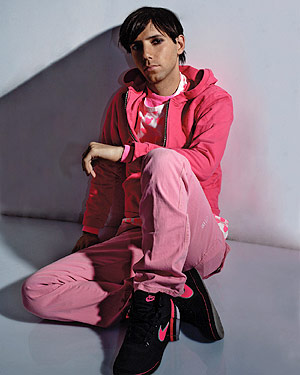 Scott Wood: Speaking of your collaboration with Jake Spears, I heard that before you guys worked together, you emailed him telling him that you admired what he was doing. And I hear you do that quite often. What’s the strangest reaction you’ve gotten from somebody in the industry that you’ve emailed out of the blue? TIGA: Yeah, I do do that—or did—I used to do that more often. Scott Wood: How about an email you’ve received that was unexpected? TIGA: I got an unexpected one, yesterday actually, from Morgan Geist—I mean I know him, but I haven’t spoken to him in a long time—saying how he loved “Shoes” and how much he loved the video, so that was cool. Scott Wood: Nice. I was talking to MSTRKRFT a while back, and they said you wanted to become a rock band, and they were quite the opposite, they were quite happy to jettison all that and remain DJs. TIGA: My thinking was obviously, I guess, the grass is always greener. For me in my career, I’ve been DJing a long time—it’s been about 16 years or something—and I don’t want to say I’ve done it all in DJing... But I’ve done it all—almost. I have been thru so many cycles of new sounds, played the biggest clubs, smallest clubs, festivals, underground and everything across the board. On a completely personal level, a lot of different factors are pointing to taking on a completely new challenge. More specifically, I think my music, my career and my image is kind of demanding a more interactive experience with the public, more of a real performance—when I say “real” it’s not to take away from DJing. But the music I’m making, there’s singing, there’s character involved and there’s maybe not full blown emotions, but at least some emotion. But it just makes sense. The only area I’ve felt held back is that I think people want more from me as a performer. I think until that’s done, things may hit a sort of plateau. On all kinds of other levels—I mean DJing is fantastic and I love it and I have always loved it—in a lot of ways, it’s much more efficient. In a lot of logical ways, it’s a much better career, if you’re thinking financially. You have a lot more freedom as a DJ. Yeah,I guess efficient is the word that comes to mind, but also, efficient isn’t always what we are looking for with our creative lives. Scott Wood: From my perspective, as a DJ, you have much more opportunity to build a relationship with the crowd, since you can change the music in a split-second to match a reaction, whereas, with a band, the emphasis has to be more on spectacle. TIGA: It really comes down to the music you’re making. It’s a personal thing. For me, something like “Beep Beep Beep” or “Shoes” or “Love Don’t Dance Here Anymore”—it would be fun to do it live. There’s room for interpretation that’s interesting. I know for myself, I like doing interviews; I like doing photo shoots; I like some aspects of videos. I am a personable guy. I know that honest truth is that mainly its nervousness or apprehension that’s held me back. I know that if I just got a major dose of courage, I think a live show is the way to go for me. It would be fun. Scott Wood: I agree your songs definitely have the depth to survive and flourish beyond the DJ booth. I think you should give it a try. Now for this record, you worked with a lot of dance heavyweights, like the Soulwax brothers and Dave Murphy from LCD Soundsystem. You also count these guys as friends, so can you talk about how you worked together while making Ciao!? TIGA: We`re very good friends. What I mean by that is we’ve crossed over to the point where I think we can all be pretty honest with each other. If they don’t like something they tell me, if I don`t like something, I tell them. We had lots of disagreements on the album. There were lots of different views on it. I think Dave always thought it should be clubbier, should be more like “Mind Dimension” or more like “Shoes,” or just more “party” and less song-based. We had specific disagreements on things like the drums on “Shoes.” I had originally done some work based on a sample that I liked the groove of. They really liked a more mechanical, kind of Prince-y, 80s groove. What we ended up with sounds almost identical to someone who hasn`t heard both, but yeah we had disagreements on that. One important distinction for me—especially working with very strong-minded people— like James Murphy or Gonzalez or Dave and Steph—these aren’t pushovers. These are very independent-minded, very intelligent, creative people. For me, we all made it known in the beginning that I’m not trying to make their record. I have to make a record that I love. I’d rather something is how I wanted it than being perfect and a lot of the time that happens. Sometimes I even know if something’s a bit lame, but I like it, so what can I do?I stick with it. Scott Wood: The big and silly rumour about “Shoes” was that Madonna was the co-vocalist on the track. Most electronic artists like to use guest vocalists, but you do this sparingly, if at all. Why? TIGA: Yeah, that was a funny rumour. I guess I end up doing these duets with Jake. Very early on, I never wanted my record to be “featuring other vocalists.” It’s not that I think I am some incredibly talented singer, I just always though there was something lame about it. I always thought there was something too “DJ-producer.” I always liked the idea of it being a lot more simple and just me. Scott Wood: Ok, last question: “Mind Dimension” the lyric is “Every time I look into your eyes, I see the future.” Is that your son? TIGA: Yes, actually. You’re the first who ever asked about that. Scott Wood: Must be kind of neat to write dance music about that. TIGA: I don’t usually like to explain songs and lyrics that much. There is something nice about the relationship between the person and a song they like—without the explanation. I mean, I never had explanation for any of the songs that I love. Most of the songs I loved, I didn’t even get the words right. Tune in to the interview show with host Scott Wood for more interviews with your favourite indie acts. Find us at www.cjsf.ca (Vancouver, BC, Mondays @4:30pm), www.radiocfxu.ca (Antigonish, NS, Fridays @11pm-12am), www.cfru.ca (Guelph, ON, Tuesdays @3pm) and www.umfm.com (Winnipeg, MB, Tuesdays @8am). You can also listen to and download both new and old shows at www.winniecooper.net. |
Reviews

Mngwa
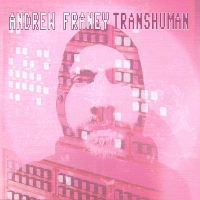
Andrew Franey
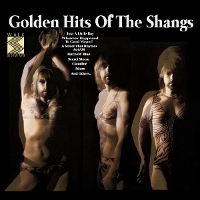
The Shangs

Alex Cuba

Tri Nguyen
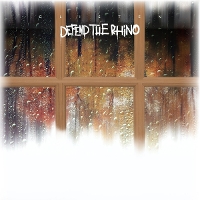
Defend The Rhino

Talltale
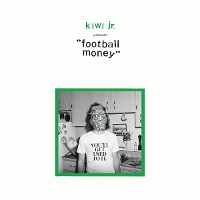
Kiwi Jr.

Plaster

Hyness
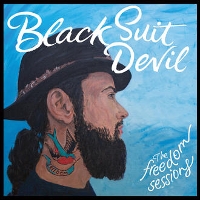
Black Suit Devil
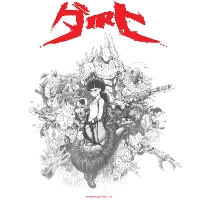
Yamantaka // Sonic Titan
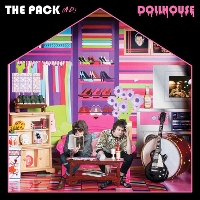
The Pack A.D.
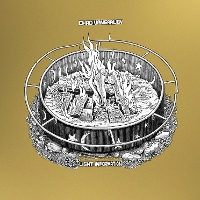
Chad VanGaalen

Potengowski Anna Friederike
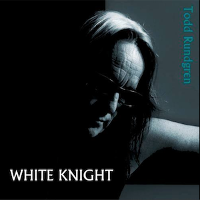
Todd Rundgren

Old 97's
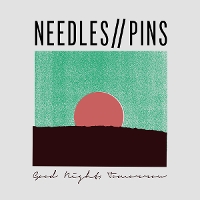
Needles//Pins


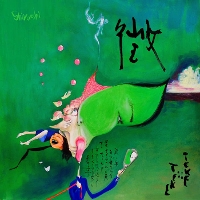
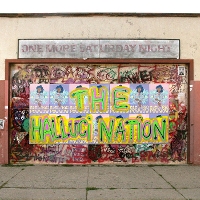
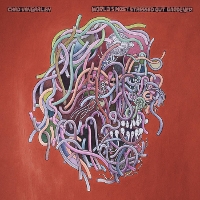
 It's been about 16 years or something - and I don't want to say I've done it all in DJing... But I've done it all
It's been about 16 years or something - and I don't want to say I've done it all in DJing... But I've done it all


